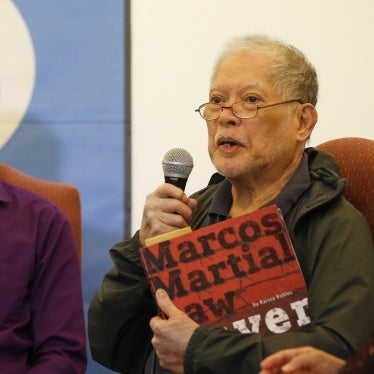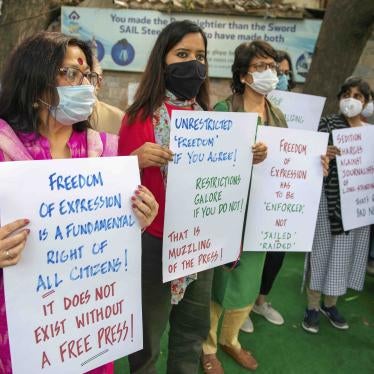Human Rights Watch today called on Indonesian authorities to step up efforts to find a missing human rights activist, Jafar Siddiq Hamzah, who vanished on Saturday from the Indonesian city of Medan. The international monitoring organization also said residents of New York city should take a particular interest in the fate of the missing activist, who is a permanent resident of Woodside, Queens. Jafar is also a student at the New School and a sometime taxi driver in the New York metropolitan area.
"Jafar came to New York because he knew he had more freedom to work on Aceh here than he had in Indonesia," said Sidney Jones, Asia director of Human Rights Watch. "He could draw on the city's resources to raise alarms about ongoing human rights violations in Aceh, and he chose New York because Queens has the largest community of Acehnese in the United States." Aceh, on the northern tip of the island of Sumatra, is a province of Indonesia, where a pro-independence movement has been clashing with the Indonesian army for the last twenty-three years.
Jafar Siddiq Hamzah left New York to return to Aceh in late June. On Saturday afternoon, he vanished, following a meeting with an Acehnese businessman in Medan, Indonesia's third largest city. He did not keep a meeting with a Japanese visitor that evening, and he did not return home that night. His family, whom he normally telephoned every few hours as a safety precaution, has not heard from him in three days. Family and friends suspect he has been taken into custody by the Indonesian military or paramilitary groups, but on Tuesday (August 8) the regional military commander denied any knowledge of Jafar's whereabouts. Inquiries from the Indonesian Commission on Human Rights, the U.S. Embassy in Jakarta, and local journalists and human rights monitors have yielded no result.
Jafar had planned to spend the summer in Aceh setting up a network to document human rights violations and to work for a resolution of the political conflict. He was also hoping to open an office there of the International Forum on Aceh, a non-profit organization he helped found in New York in 1998. He then planned to return to New York to resume his studies at the New School, where he is enrolled for the fall semester in the political science department.
But work on Aceh, whether from Aceh or from the city of Medan, can be dangerous. An armed independence movement called the Free Aceh Movement has been active in Aceh since 1977, but Aceh's history of rebellion against central government authority ?both Indonesian and before that, Dutch colonial ?goes back centuries. The current rebellion is rooted in resentment over the lack of benefits that have accrued to Aceh from development of the resources it produces, including oil and natural gas, and the fact that most of the human rights violations against civilians committed in the name of counterinsurgency have gone unpunished.
The fall of former dictator Soeharto in May 1998 and East Timor's successful breakaway from Indonesia last year gave new life to the independence movement in 1999, but fresh activism was met with fresh repression, and hundreds more civilians were killed. The Free Aceh Movement has also been responsible for human rights violations, but many of those targeted by the military were not guerrillas and had no connection with any armed movement. They were students and professionals who believed that the people of Aceh should have a right to determine their own political future.
Jafar has worked to defend human rights in Aceh since the late 1980s, but his decision to found the International Forum on Aceh, and a related organization, the Support Committee for Human Rights in Aceh grew out of his commitment to the notion that Acehnese should be allowed to freely discuss all political options without fear of imprisonment, torture, or disappearance. He helped bring people of widely disparate views into contact with one another and succeeded in getting Indonesian government officials to sit at the same seminar with representatives of the independence movement.
When he returned to Aceh this summer, he was immediately aware that he was being followed. He did not want to be outdoors late at night and made sure that friends and family knew where he was at all times. Too many people he knew had been kidnapped, tortured, or killed. Many Acehnese believed it was safer to be in Medan, the large city to the south of Aceh, and went there for refuge if they faced threats or intimidation. But even Medan could be dangerous. In January 2000, a fifty-three-year-old parliamentarian from Aceh named Nashiruddin Daud was kidnapped there and later killed.






